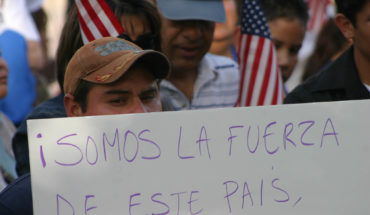
Jacqueline F. fell into the trap. She believed in a fake news story spread through an alleged screening of a diary on Instagram in 2019. That false news said police officers had hanged protesters at Chile’s subway stations. At the time, Chileans were protesting against the rising cost of public transport, and while carabinieri harshly suppressed the protesters, which was criticized by human rights organizations, they did not hang anyone from the gallows. “I was totally surprised and thought, ‘How is it possible for the police in Chile to do that?'” recalls Jacqueline F.
Jacqueline accidentally fell into the trap. But there are people who prefer to give credit to misinformation and conspiracy theories. “That depends on the positions themselves,” conflict investigator Andreas Zick explains to DW. “When you have certain preconceived attitudes or images of the enemy, you tend to believe in conspiracy myths.” Images of the enemy can be, for example, the police, a government, or even activists in the fight against climate change.
On social media there are countless online offers that confirm the opinion itself, says Zick. “That’s why many only read or watch channels that match their opinion. It’s more than a bubble, it’s a kind of parallel universe that meets all kinds of needs.”
Fear plays an important role in this, says psychology professor Andreas Kappes of City University London. “It may be, for example, that someone is afraid of needles and that’s why they don’t want to get vaccinated,” he explains. The person then seeks information that reinforces that vaccines are dangerous and that there is no need to be vaccinated.
“So before you ask yourself ‘why don’t people believe in science?’ you have to question why you don’t want to believe in science,” Kappes says. According to him, the problem does not reside in whether people are educated or instilled.
However, the ability to distinguish between good and bad sources plays an important role, explains the neuroscientific Franca Parianen. “Conspiracy ideologians don’t apply serious parameters when choosing whether their sources are expert, or limited to any video someone posted on YouTube,” he explains. He adds that this is not taught enough, not even to children in school.
Moreover, those who have suffered a serious crisis in their lives and have lost control over it are often vulnerable to fake news, says Parianen, who adds that believing in something, even if it is false, gives people some security. “Accepting an easy explanation for difficult things makes the world seemingly more understandable,” explains the neuroscientist, concluding that “when those who believe in conspiracy legends feel insecure, they try even harder to convince others. Because if someone else believes the same thing, they feel confirmed in their belief.”
During the pandemic, boredom has been an additional factor, he said. “Boredom helps people get caught up in conspiracy legends,” Parianen explains. Suddenly, one has plenty of time to search for data and opinions on many Internet sites that corroborate one’s tendency to believe in legends, he says. “If you later join a community, you no longer feel alone at home. In the end, it turns out you identify with a group.”
The algorithm as a catalyst for fake news
However, fake news is not only a product of user psychology, but also social media, jens Koed Madsen, a research assistant at Oxford University, says in an interview with DW. The combination of the opinion itself and the algorithm is dangerous, he points out. A US investigation ensures, for example, that fake news spreads much faster on Twitter than real news. “Fake news often contains emotional, often rugged language,” Madsen says. Sometimes misinformation is so absurd, but “fun” that even people who don’t believe in it unfortunately share it.
However, those who think that conspiracy legends are true can still be convinced by rational arguments, explains Andreas Kappes. You just have to address those people the right way. “If they contradict them, they don’t listen to each other,” the psychologist says. He adds, “You have to find common ground, one thing you agree on, and then discuss it and present the facts.” After all, people who believe in fake news need to find something that gives them security. “It helps to look for spaces in life that can be controlled, to engage in democratic organizations,” he recommends, for example Parianen. “Reliable relationships in the environment always help.” As well as training in the selection of sources. Know which sources are reliable and which are not key.
This behavior helps, above all, people like Jacqueline F., who tend to fall into the trap of spreading fake news. Now, she investigates the news more closely: “If I don’t know if something is false or true, I try to find more information about it. I try to rely on reliable sources and not on unsy serious internet portals,” he says.




